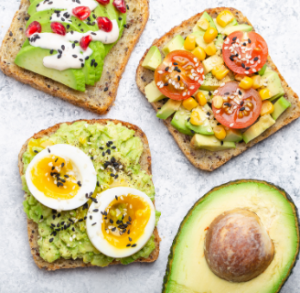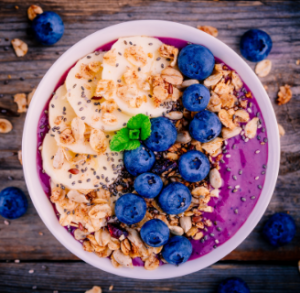Latest resources
Disc of Five
Vegetables & Fruit
Oils, Fats & Spreads
Dairy, fish, legumes, meat, egg & nuts
Bread, cereal products, potatoes & other carbohydrates
Drinks
Disc of five
Eating a balanced diet is important for our health. The key to eating well is to enjoy a variety of nutritious foods from each of the Five Food Groups. That way, you’ll be getting a fantastic mix of the best nutrients and vitamins. Foods in one group provide similar amounts of the key nutrients of that food group. For example, the key nutrients of the milk, yogurt, cheese and alternatives food group include calcium and protein, while the fruit group is a good source of vitamins, especially vitamin C. To meet the nutrient requirements essential for good health, you need to eat a variety from each of the five food groups daily, in the recommended amounts. It is not necessary to eat from each food group at every meal. In fact, in some instances, you only need to eat some of the foods in each food group a couple of times a week. It is also important to enjoy a variety of foods within each of the Five Food Groups because different foods vary in the amount of the key nutrients that they provide. For example, in the vegetables and legumes food group, orange vegetables such as carrots and pumpkins contain significantly more vitamin A than other vegetables such as potatoes.
Click on a part of the disk to start!
Vegetables & Fruit
Most of us are still not eating enough fruit and vegetables. They should make up over a third of the food we eat each day. Aim to eat at least 5 portions of fruit and veg each day. Remember that fruit juice and smoothies should be limited to no more than a combined total of 150ml a day.
Fruit and vegetables are a good source of vitamins, minerals and fibre.
Oils, Fats & Spreads
Unsaturated fats are healthier fats and include vegetable, rapeseed, olive, and sunflower oil. Remember all types of fat are high in energy and should not be eaten too often.
Read moreDairy, fish, legumes, meat, egg & nuts
Dairy Products: Milk, cheese, yoghurt, and fromage frais are good sources of protein and some vitamins. They are also an important source of calcium, which helps keep our bones strong. Try to go for lower fat and lower sugar products where possible, like 1% fat milk, reduced-fat cheese or plain low-fat yoghurt.
Proteins: These foods are good sources of protein, vitamins, and minerals. Pulses, such as beans, peas, and lentils are good alternatives to meat because they’re lower in fat and higher in fibre and protein. Choose lean cuts of meat and mince and eat less red and processed meat like bacon, ham, and sausages. Aim for at least 2 portions of fish every week, 1 of which should be oily, such as salmon or mackerel.
Bread, cereal products, potatoes & other carbohydrates
Starchy food should make up just over a third of the food we eat. Choose higher fibre wholegrain varieties, such as wholewheat pasta and brown rice, or simply leave skins on potatoes. There are also higher fibre versions of bread and pasta. Starchy foods are a good source of energy and the main source of a range of nutrients in our diet.
Read moreDrinks
Water, lower fat milks and lower sugar or sugar-free drinks all count. Fruit juice and smoothies also count towards your fluid consumption, but they contain sugars that can damage teeth, so limit these drinks to a combined total of 150ml a day.
Read more
You can make veggies taste better by adding spices


















